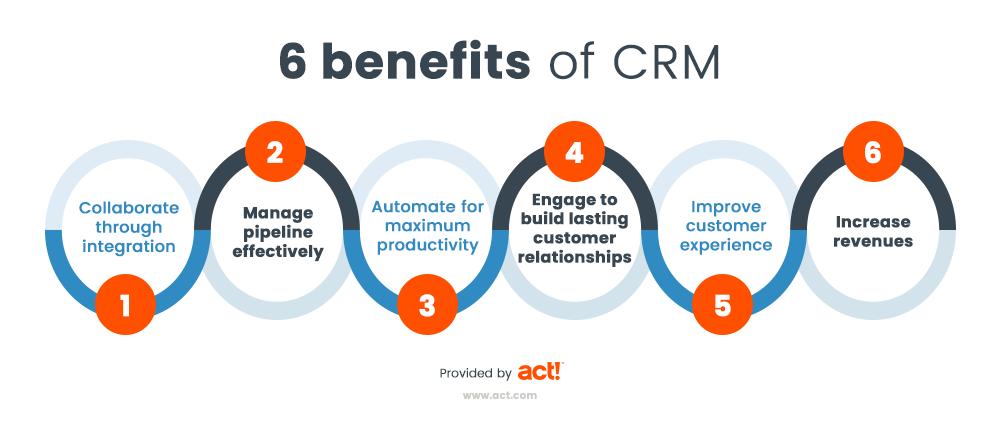CRM Solutions Meaning! CRM solutions are customer relationship management systems used to manage interactions with customers. They help businesses improve relationships and streamline processes.
CRM solutions play a crucial role in modern business strategies. They help companies organize customer data, track interactions, and enhance customer service. Businesses use CRM systems to gather insights, personalize marketing efforts, and boost sales. These tools also streamline workflows and improve team collaboration.
With CRM solutions, companies can automate repetitive tasks and focus on building stronger relationships. This leads to increased customer satisfaction and loyalty. Adopting CRM solutions is essential for businesses aiming for growth and efficiency. They provide a competitive edge by leveraging data to make informed decisions.
Introduction To CRM Solutions
Customer Relationship Management (CRM) solutions are vital for modern businesses. They help manage customer data, track interactions, and improve relationships. CRM solutions streamline processes and enhance customer satisfaction. Let’s dive into what CRM is and its importance for businesses.
What Is CRM?
CRM stands for Customer Relationship Management. It is a technology used to manage interactions with customers and potential customers. CRM systems store customer information like contact details, purchase history, and preferences. This information helps businesses understand their customers better.
CRM solutions also automate tasks. They streamline sales, marketing, and customer service processes. This leads to increased efficiency and better customer experiences.
Importance For Businesses
CRM solutions offer many benefits for businesses. Here are some key reasons why they are important:
- Improved Customer Relationships: CRM systems help businesses know their customers better. This allows for more personalized interactions and better service.
- Increased Efficiency: Automation of routine tasks saves time and reduces errors.
- Better Data Management: Centralized data storage ensures all customer information is easily accessible.
- Enhanced Communication: CRM systems facilitate better communication within the team and with customers.
Businesses can also use CRM data to make informed decisions. This leads to improved strategies and increased revenue.
In summary, CRM solutions are essential tools for modern businesses. They enhance customer relationships and streamline operations.

Credit: www.act.com
Types Of CRM Systems
Customer Relationship Management (CRM) systems are essential tools for businesses. They help manage interactions with customers. There are various types of CRM systems, each designed to address specific needs. Here, we will explore the three main types: Operational CRM, Analytical CRM, and Collaborative CRM.
Operational CRM
Operational CRM focuses on streamlining business processes. It helps automate sales, marketing, and customer service functions. The goal is to generate leads, convert them into contacts, and provide service infrastructure. Features often include:
- Sales force automation
- Marketing automation
- Service automation
These features enhance efficiency. They ensure that customers receive a seamless experience.
Analytical CRM
Analytical CRM deals with analyzing customer data. It helps businesses make informed decisions. By examining data, companies can understand customer behavior. Key components include:
- Data mining
- OLAP (Online Analytical Processing)
- Business intelligence
These tools provide insights into customer preferences. They enable businesses to tailor their strategies accordingly.
Collaborative CRM
Collaborative CRM focuses on sharing information across teams. It ensures that customer data is accessible to all departments. This improves communication and coordination. Important features include:
- Interaction management
- Channel management
By using Collaborative CRM, businesses can provide a unified customer experience and build strong customer relationships.
Here is a comparison table for better understanding:
| Type | Main Focus | Key Features |
|---|---|---|
| Operational CRM | Automating business processes | Salesforce, Marketing, Service Automation |
| Analytical CRM | Analyzing customer data | Data mining, OLAP, Business intelligence |
| Collaborative CRM | Sharing information across teams | Interaction, Channel management |
Understanding these types of CRM systems can help you choose the right one. This ensures that your business operations are efficient and customer-centric.
Key Features Of CRM Solutions
Understanding the key features of CRM solutions is essential. These features help businesses manage customer relationships effectively. Let’s explore the main features:
Contact Management
Contact management is vital in any CRM system. It helps businesses store and manage customer information. This feature allows easy access to customer data, including names, addresses, and communication history. It ensures all team members have the same information. A centralized contact database improves communication and customer service.
Sales Automation
Sales automation streamlines the sales process. It automates repetitive tasks, saving time and reducing errors. This feature includes lead management, tracking, and follow-up reminders. Sales automation helps sales teams focus on closing deals. It improves efficiency and productivity, leading to increased revenue.
Customer Support
Customer support is a crucial feature of CRM solutions. It helps businesses manage customer inquiries and issues. This feature includes ticketing systems, live chat, and knowledge bases. Effective customer support builds trust and loyalty. Happy customers are more likely to return and recommend your business.
| Feature | Benefit |
|---|---|
| Contact Management | Centralized customer data, improved communication |
| Sales Automation | Increased efficiency, higher revenue |
| Customer Support | Better service, increased loyalty |
- Centralized data improves team collaboration.
- Automated tasks free up time for important activities.
- Effective support enhances customer satisfaction.
- Start with contact management to keep data organized.
- Use sales automation for efficient processes.
- Implement customer support tools to handle inquiries smoothly.
:max_bytes(150000):strip_icc()/customer_relation_management.asp-final-a6b5aa33bf034f64a793ac97834cd669.jpg)
Credit: www.investopedia.com
Benefits Of CRM For Businesses
Customer Relationship Management (CRM) solutions offer many advantages. They help businesses manage interactions with customers. CRM systems improve customer service, sales, and data management. Let’s explore the key benefits in detail.
Enhanced Customer Relationships
With CRM, businesses can track customer interactions. This helps understand customer needs better. It allows for personalized communication. Improved relationships lead to higher customer satisfaction. Happy customers are loyal customers.
Improved Sales Performance
CRM systems streamline the sales process. They provide sales teams with essential tools. These tools help manage leads and opportunities. CRM solutions automate many sales tasks. This increases efficiency and boosts sales performance.
| Feature | Benefit |
|---|---|
| Lead Management | Better organization of potential clients |
| Opportunity Tracking | Monitor sales progress easily |
| Automated Tasks | Save time on repetitive tasks |
Better Data Management
CRM systems centralize customer data. This ensures data is accurate and accessible. It helps in making informed decisions. Better data management leads to better business strategies. Businesses can identify trends and opportunities.
- Centralized data storage
- Accurate customer information
- Improved decision-making
- Identification of trends
Choosing The Right CRM Solution
Choosing the right CRM solution is critical for business success. The correct CRM system can streamline processes, improve customer relationships, and boost sales. Here are some key factors to consider.
Assessing Business Needs
Begin by identifying your business needs. What are your objectives? Do you need better customer management or sales tracking? List your requirements clearly.
- Customer interaction tracking
- Sales pipeline management
- Marketing automation
- Customer support features
Create a detailed list of features that are essential for your business. This will help narrow down your options.
Evaluating CRM Providers
Research various CRM providers. Look at their offerings, pricing, and customer reviews.
| Provider | Features | Pricing | Customer Reviews |
|---|---|---|---|
| Provider A | Feature 1, Feature 2 | $$ | 4.5/5 |
| Provider B | Feature 3, Feature 4 | $$$ | 4/5 |
| Provider C | Feature 5, Feature 6 | $ | 3.5/5 |
Compare their offerings and choose the one that fits your needs. Ensure the provider has good support and training options.
Implementation Considerations
Consider the implementation process. Will it integrate with your current systems? Check if it is user-friendly. Training for your team is essential.
- Integration with existing systems
- User-friendliness
- Team training
Ensure there is a clear plan for data migration. Data accuracy is crucial. Plan for ongoing support and updates from the provider.
Integrating CRM With Other Tools
Integrating CRM with other tools is vital for business success. It enhances productivity and streamlines operations. Integration ensures seamless data flow and improves customer experience. Below, we explore various integrations that can boost your CRM’s effectiveness.
Email Marketing Integration
Email marketing integration connects your CRM with email platforms. This ensures personalized email campaigns. It allows automatic syncing of contact lists. You can track email engagement and responses.
- Send targeted emails based on customer data.
- Monitor open and click-through rates.
- Automate follow-up emails.
Using this integration saves time and enhances marketing efforts.
Social Media Integration
Social media integration links your CRM with social platforms. This helps in tracking social interactions. It provides insights into customer behavior and preferences.
- Manage social media campaigns from your CRM.
- Track mentions and comments.
- Engage with customers in real-time.
This integration helps in building stronger customer relationships.
Erp Integration
ERP integration connects your CRM with enterprise resource planning systems. This ensures data consistency across departments. It streamlines business processes and improves decision-making.
- Access real-time inventory and sales data.
- Enhance order processing and fulfillment.
- Improve financial reporting and analysis.
This integration boosts efficiency and reduces operational costs.
Challenges In CRM Implementation
Implementing a Customer Relationship Management (CRM) system can transform your business. But it also comes with several challenges. These challenges can delay or hinder the benefits of CRM solutions. Addressing these issues is crucial for successful CRM implementation.
User Adoption Issues
One major challenge is user adoption. Employees may resist new systems. They may feel comfortable with old methods. Training and support are key to overcoming this resistance. Clear communication about the benefits of CRM can also help. Engaging users early and often can make a difference.
Data Migration Challenges
Another significant issue is data migration. Moving data from old systems to the new CRM is complex. Data integrity must be maintained. Inconsistent data can cause problems. A detailed migration plan is essential. This plan should include data cleaning and validation steps. Testing the migrated data before going live is critical.
Customization Complexities
CRM systems often need customization to fit business needs. This process can be complex and time-consuming. Customizations must align with business processes. Over-customization can lead to difficulties in future upgrades. Balancing customization with system flexibility is important. Regular reviews of customizations can help maintain system efficiency.
| Challenge | Description | Solution |
|---|---|---|
| User Adoption | Resistance to new systems | Training and support |
| Data Migration | Moving data accurately | Detailed migration plan |
| Customization | Fitting CRM to needs | Balanced approach |
Future Trends In CRM Solutions
The future of CRM solutions is evolving rapidly. New technologies are transforming how businesses manage customer relationships. Here are some future trends in CRM solutions:
Ai And Machine Learning
AI and Machine Learning are revolutionizing CRM systems. These technologies help automate tasks and improve customer interactions. AI can predict customer behaviors. Machine learning can analyze data trends. Businesses can use these insights to enhance customer experience.
Mobile CRM
Mobile CRM is becoming essential for modern businesses. Employees need access to CRM data on the go. Mobile CRM apps provide this flexibility. They help sales teams update information in real-time. They also allow managers to monitor performance from anywhere.
Personalization
Personalization is key in the future of CRM solutions. Customers expect tailored experiences. CRM systems can track customer preferences. They can then offer personalized product recommendations. This increases customer satisfaction and loyalty.

Credit: www.selecthub.com
Frequently Asked Questions
What Is A CRM Solution?
A CRM solution is a tool that helps manage customer relationships. It streamlines processes, improves customer service, and boosts sales.
How Do CRM Solutions Work?
CRM solutions organize customer data in one place. They help track interactions, manage leads, and automate tasks for better efficiency.
Why Are CRM Solutions Important?
CRM solutions are vital for improving customer satisfaction. They enhance communication, streamline operations, and provide insights to drive business growth.
What Are the Key Features Of CRM Solutions?
Key features include contact management, sales automation, customer support, and analytics. These features help improve efficiency and decision-making.
Conclusion
CRM solutions streamline business operations and enhance customer relationships. They offer valuable insights and improve efficiency. Implementing a CRM system can lead to increased customer satisfaction and business growth. Embrace CRM solutions to stay competitive and foster long-term success. Start leveraging CRM today to transform your business dynamics.





